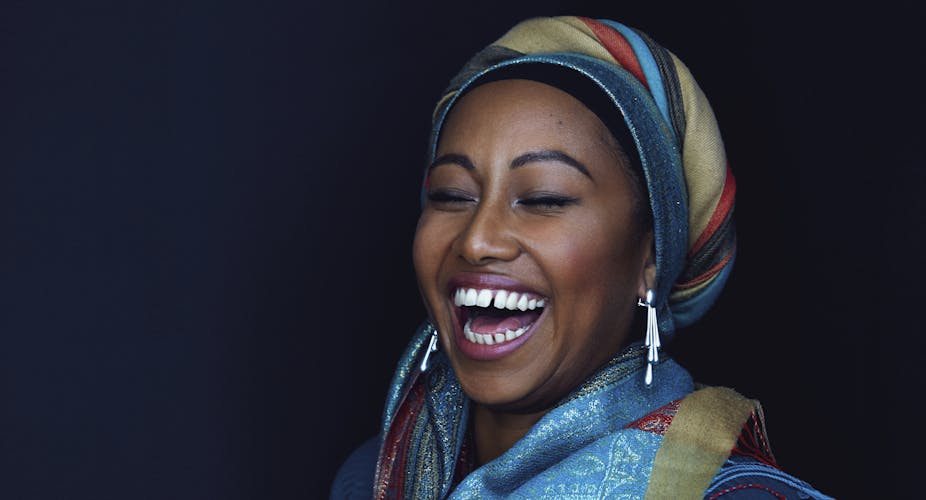There are two issues in the latest episode of the culture wars, sparked by the Anzac Day Facebook comment by controversial young Muslim activist and part-time ABC presenter Yassmin Abdel-Magied.
One is what she actually said; the other is whether the ABC should act against a presenter who made such a comment – but not on air.
Abdel-Magied posted:
Lest. We. Forget. (Manus, Nauru, Syria, Palestine …)
She later removed the bracketed part and apologised “unreservedly”, saying it had been brought to her attention that her post had been disrespectful.
Predictably, outrage has followed her post, which has become the latest weapon for those wanting to beat up on the ABC.
The Daily Telegraph devoted most of its front page to what surely was a marginal piece of news.
“Two Finger Salute” screamed the headline, with a line over it, “ABC host’s ultimate insult to Anzac legend”. Just to ensure readers got the point, the line under the heading read: “Un-Australian Broadcasting Corporation backs activist who demeans our war heroes.”
Conservative Liberal senator Eric Abetz has asked Foreign Minister Julie Bishop to terminate Abdel-Magied’s membership of the Council for Australian-Arab Relations. Immigration Minister Peter Dutton said it was “a disgrace that on our most significant national day … this advocate seeks to make political mileage”.
The Nationals’ George Christensen said not only shouldn’t Abdel-Magied be on the ABC, but “self-deportation [she was born in Sudan and has been in Australia since she was a toddler] should also be considered”.
Pauline Hanson tweeted: “Why’s the overfunded ABC giving a platform to people like Ms Abdul-Mageid [sic]?”, adding: “Let’s end this sort of tokenism!”
One-time Labor minister Graham Richardson said her performance “demonstrates what is wrong with the ABC”.
“Remember that the essence of the public broadcaster is Australian. If you can’t put Australia first then we, as taxpayers, should not be forking out for the salary of someone who she says is ‘first and foremost a Muslim’,” Richardson wrote.
The ABC said in a statement that it was appropriate that Abdel-Magied deleted and apologised for the words. But it has not taken action against her.
It pointed out she is a part-time presenter on Australia Wide, and in that role worked in accordance with ABC rules. Beyond that, it said, she was engaged in a range of other activities unrelated to the ABC. “Her views and opinions in that capacity are her own and do not represent those of the ABC.”
But Deputy Prime Minister Barnaby Joyce wanted action, warning that “the people are watching the ABC on this one”, and pointing out it was paid for by the taxpayers.
It is important to remember Abdel-Magied’s comment was not made when she was actually presenting on the ABC.
Are the critics saying that the ABC must be responsible for the views expressed in other forums by anyone who might be a part-time presenter?
Critics are always insisting the ABC should have more conservative presenters. If more conservatives were appointed to present one or two programs, should what they said elsewhere follow ABC guidelines and be under strict ABC control? Hardly.
In terms of the content of Abdel-Magied’s post, vocal advocates of removing restraints (notably Section 18C of the Racial Discrimination Act) to promote “free speech” can’t object when someone speaks out.
The fact that a remark is considered disrespectful or against Australian values is hardly the point – or perhaps it makes the point. The test of your commitment to free speech, a core Australian value, is when you don’t like what’s being said.
Abdel-Magied’s comment upset many people, but was mild by comparison with, for example, some of the dialogue in Alan Seymour’s famous The One Day of the Year.
In that play, the young character Hughie declares: “That whole thing – Anzac – Gallipoli – was a waste. Certainly nothing to glorify.”
Wacka Dawson tells Alf, fellow digger and Hughie’s father: “He’s got the right to think and say what he likes. Any fightin’ we ever did, you ‘n’ me, in any wars, it was to give him that right.”
Seymour’s play, written in 1958, caused a furore, including a bomb scare during a dress rehearsal and death threats to the author. It went on to be seen as a classic in Australian writing.

